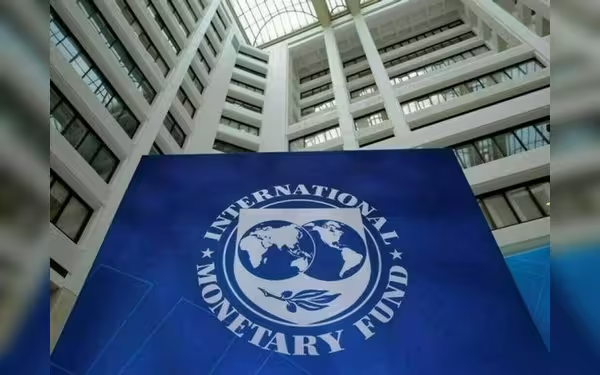Tuesday, July 2, 2024 03:12 PM
IMF Report Urges Exchange Rate Adjustments for Economic Stability
- IMF emphasizes avoiding import restrictions and currency depreciation for economic stability
- Experts anticipate slight currency depreciation before IMF program
- Central bank inclined to release pending dividend payments to meet IMF requirements
 Image Credits: brecorder
Image Credits: brecorderThe latest IMF report stresses the importance of exchange rate adjustments and removing import restrictions to enhance economic stability. Experts anticipate a slight currency depreciation before the upcoming IMF program, with the central bank signaling a shift towards meeting IMF demands while maintaining stability.
The latest report from the International Monetary Fund (IMF) delves into the assessment of external accounts, with a particular focus on the role of exchange rates as shock absorbers. The report emphasizes the importance of avoiding import restrictions and suggests that lifting such restrictions may require a real depreciation of the currency. While the government's efforts to eliminate distortions are acknowledged, the IMF believes further reforms are necessary to address concerns about foreign exchange interventions and low reserve levels.
External competitiveness remains a challenge, as indicated by the Real Effective Exchange Rate (REER) showing signs of strain despite nominal stability. The IMF hints at the necessity of exchange rate adjustments and addressing payment distortions to enhance economic stability. Recent precedents, like Egypt adjusting its currency before an IMF deal, suggest that currency depreciation could be a crucial step for Pakistan's upcoming program.
Market analysts anticipate a slight currency depreciation before the IMF program, with estimates ranging from 1-2 percent. The banking sector notes a decrease in demand, with most import payments covered by inflows. However, unresolved pending dividends and other payments pose challenges. The debate revolves around the potential depreciation of the exchange rate before the IMF program and its implications.
Experts suggest that a modest depreciation could attract foreign investments and strengthen foreign exchange reserves. Some advocate for removing import restrictions to combat inflation and promote economic stability. The consensus leans towards gradually easing administrative controls and aligning the REER with export-friendly levels to encourage inflows and reserve accumulation.
The central bank appears inclined to partially release pending dividend payments, signaling a shift towards meeting IMF requirements. The focus is on clearing outstanding payments while maintaining a slightly undervalued currency to support reserve accumulation. However, caution is advised against abrupt currency movements that could disrupt stability. A projected 5-10 percent currency depreciation before July is expected, with a slower decline in interest rates compared to falling inflation rates.
The IMF report underscores the significance of exchange rate adjustments and the removal of import restrictions to enhance economic stability. While challenges persist, gradual reforms and alignment with export-friendly levels are seen as crucial steps towards attracting investments and bolstering reserves. The upcoming period may witness a modest currency depreciation, signaling a shift towards meeting IMF demands while maintaining stability.













